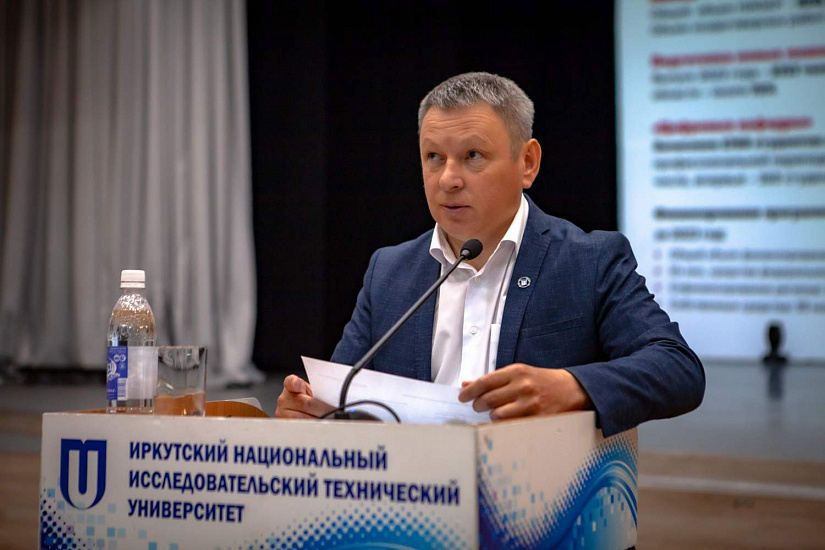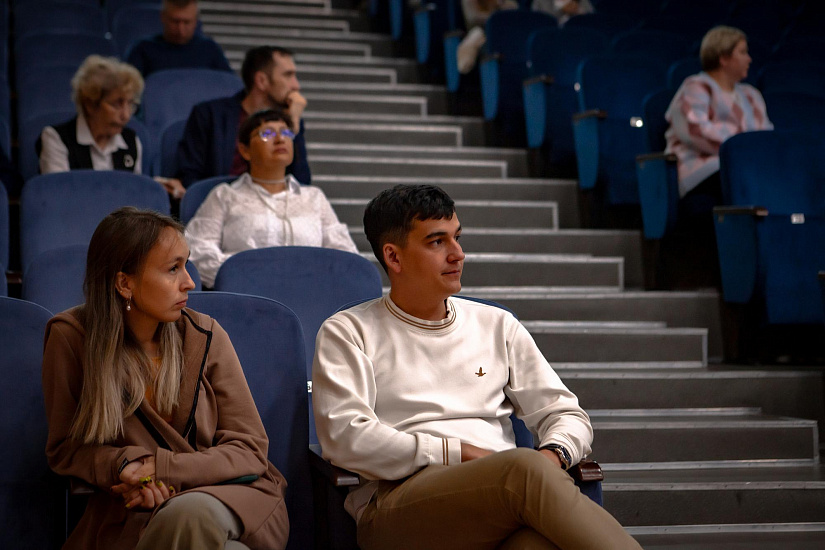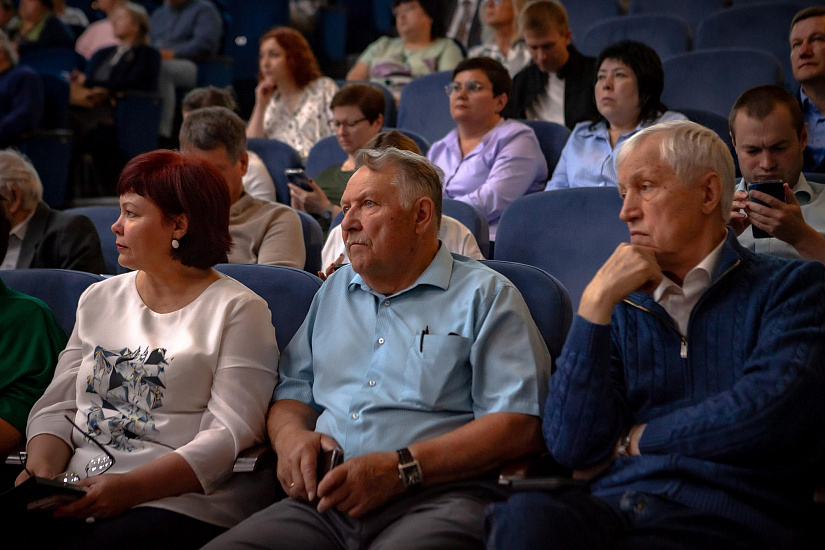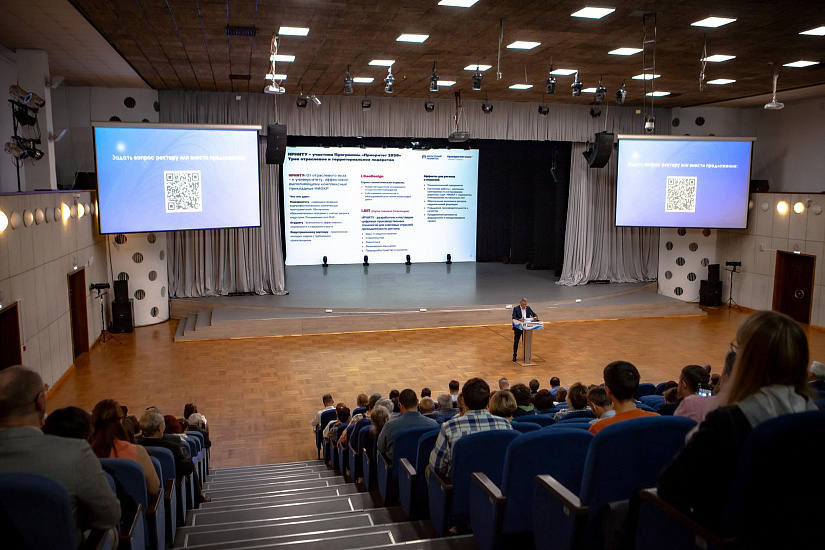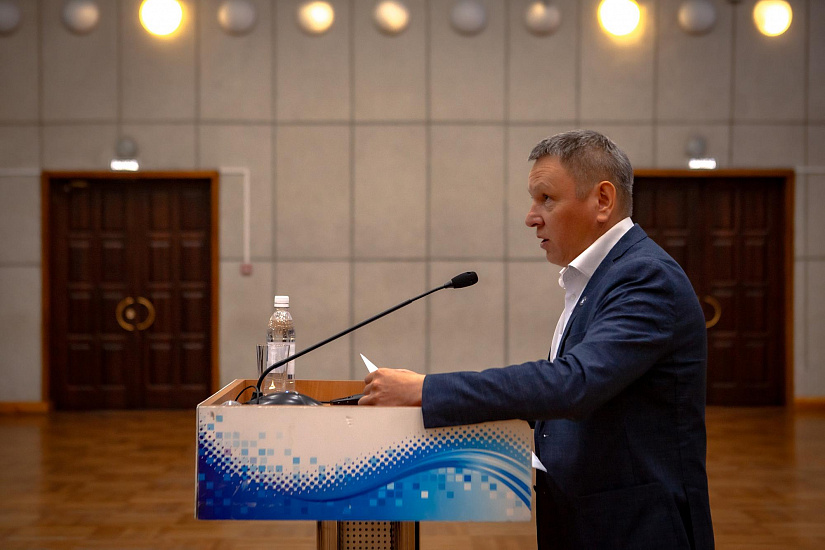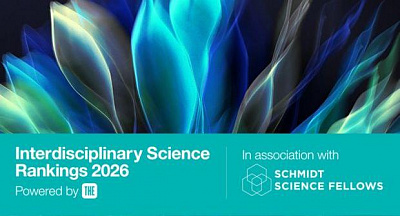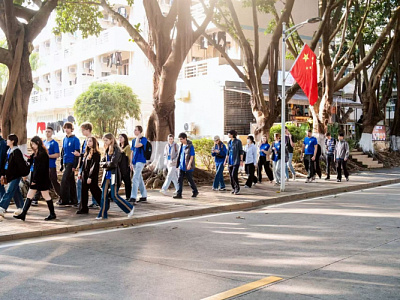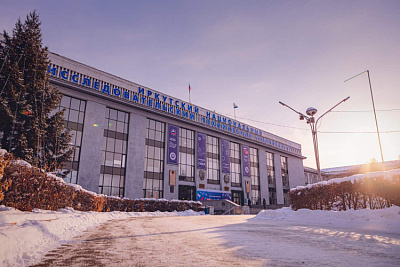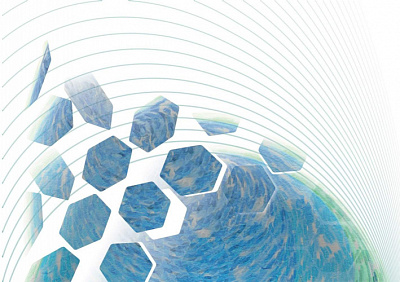Mikhail Korniakov: INRTU is Ready to Solve Unique and Complex Technological Challenges of The Industry
Results of the scientific research policy for 2023 were presented by INRTU Rector Mikhail Korniakov at an extended meeting of the Academic Council.
In addition to implementing two strategic projects under the Priority 2030 program, university staff worked on four grants from the Russian Science Foundation totaling 11.5 million rubles.

“The university continues to fulfill the state order for conducting scientific research. Our specialists are working on three projects with funding of over 44.5 million rubles. Key results include 11 articles (Scopus), of which seven are Q1. One doctoral dissertation was defended, and a monograph was prepared.
Under the Priority 2030 program, we are holding a competition for initiative projects to support young scientists. This will help them build their potential and further develop successfully. The university has allocated five grants of 0.5 million rubles each,” said Mikhail Korniakov.
Irkutsk National Research Technical University is creating a sector for certifying scientific and teaching staff. The rector pointed out that INRTU, having the status of a National Research University, can open its own dissertation councils. Currently, besides the two dissertation councils of the Higher Attestation Commission, the university has established six of its own dissertation councils. In 2023, 11 candidate dissertations and two doctoral dissertations were defended.
The university supports the publication of seven scientific magazines.
The Rector positively assessed the level of international scientific events organized by the university. Events like the 20th International Symposium on High-Resolution Molecular Spectroscopy (HighRus-2023), the International Conference on Aviation Engineering, and the 5th Baikal International Conference “Snow Cover, Atmospheric Precipitation, and Aerosols” attracted significant interest from the scientific community.
“Our university, together with En+ and other partners, held a scientific school called 'Chemistry of the Future'. Master classes and educational programs were organized for students and young scientists to involve them in current areas being developed at the Federal Chemistry Center in Usolye-Sibirskoye,” noted Mikhail Korniakov.
The university continues its work at the Baikal Research and Education Center in areas related to the processing of industrial waste and the development of new photo-functional compounds, as well as materials and technologies for photopharmacology, molecular electronics, photonics, and sensors. From 2021 to 2023, university scientists published 25 scientific articles (Q1-Q2, WOS, and Scopus). One doctoral and one candidate dissertation were defended. 15 students and 22 employees under the age of 39 are employed in scientific departments.
The Rector noted that the publication activity of the faculty is increasing.
In his report, Mikhail Korniakov also focused on the main results of the transformation of the research and development sector:
“INRTU is moving from single orders to performing R&D as part of long-term plans for major companies in various industries. The research agenda is being developed jointly with industrial and strategic partners. The University is ready to solve unique and complex technological challenges of the industry.”
INRTU is introducing new approaches to forming the PI (Principal Investigator) corps. The development of regulations to support Principal Investigators is being finalized. They will receive administrative and financial support, and research teams under their leadership will be able to qualify for autonomous university status and independently sign contracts worth up to 10 million rubles.
The rector presented the dynamics of the implementation of complex R&D projects. In 2023, a total of 816.1 million rubles worth of work was performed, of which 538 million rubles (66% of the total) were for complex projects.
As Mikhail Korniakov emphasized, the active promotion of R&D and the commercialization of intellectual property rights remain among the main tasks for 2024. The university is interested in signing large contracts, projects integrating interdisciplinary teams, and projects addressing the region's priority tasks.
INRTU is focused on developing competence centers, performing engineering work with new samples, increasing projects with patents, and protecting intellectual property rights in startups. The formation of expert councils and the involvement of industry and academic experts will continue.
In addition, according to the rector, the Baikal Technology Transfer Center has received new development impetus. This unit will work together with foreign partners such as Shenyang University of Chemical Technology, Harbin Institute of Technology, and others.
